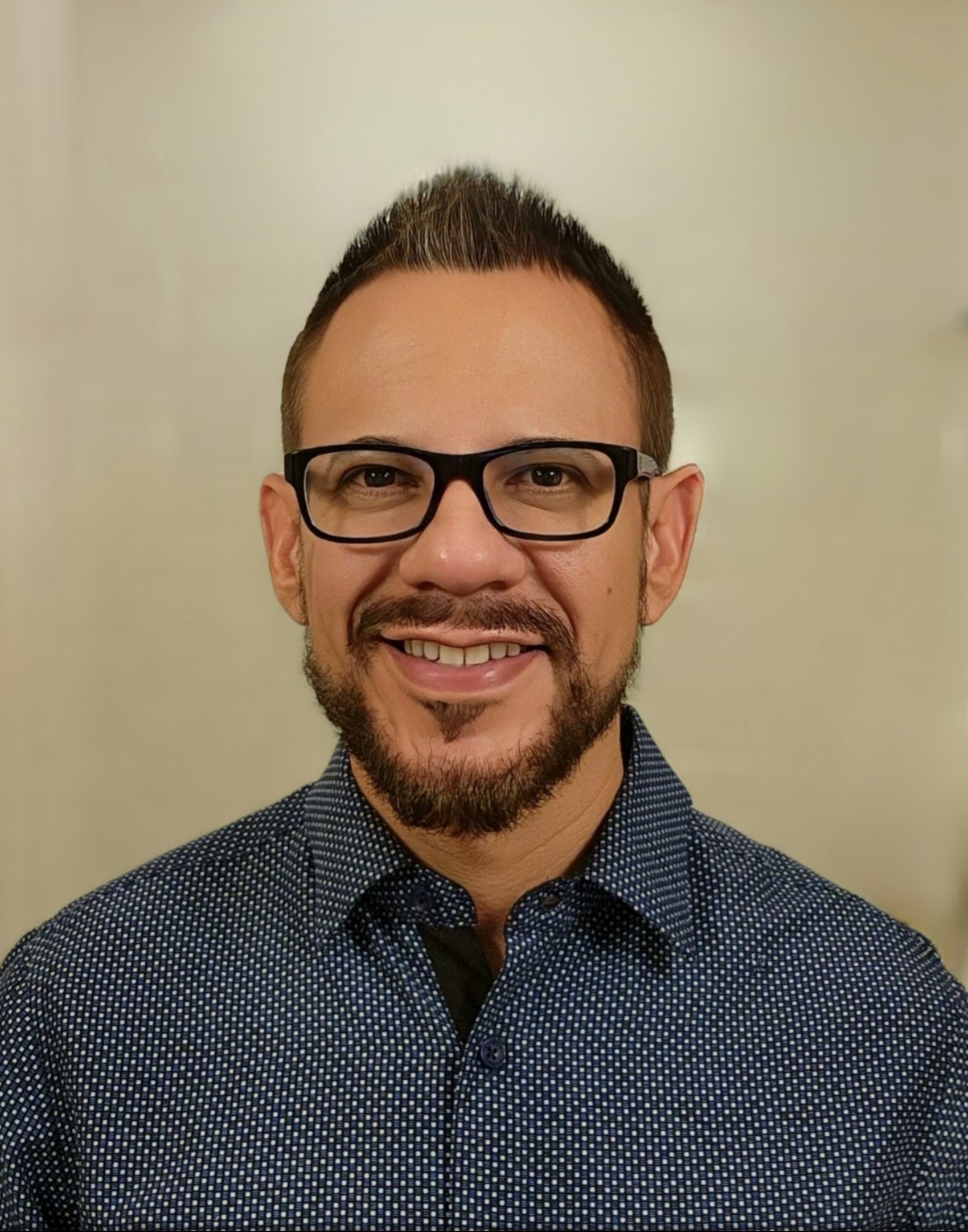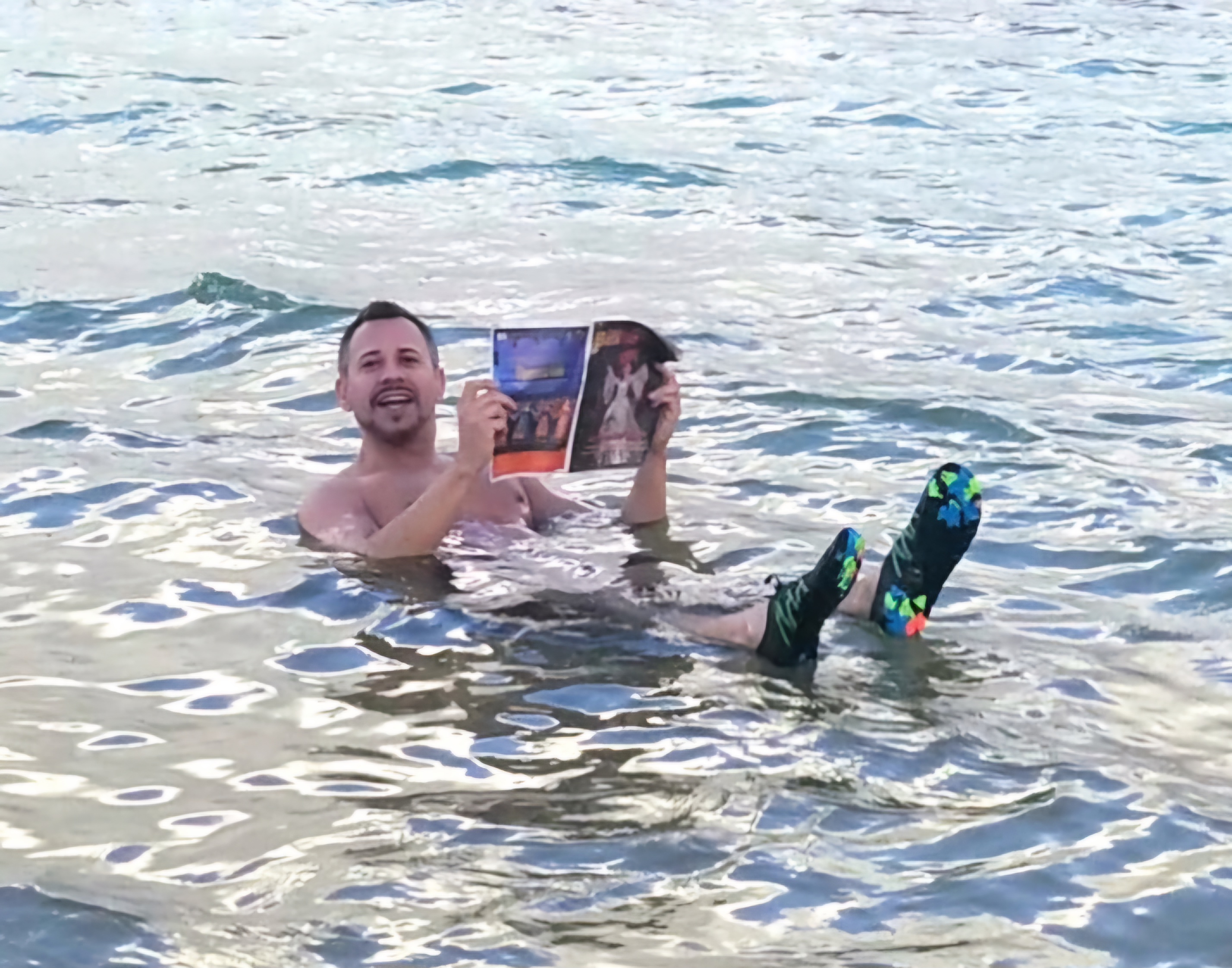The School of Medicine Basic Sciences has seen remarkable and diverse trainees come through its doors, collaborate with and learn from distinguished faculty, then graduate from one of our nationally ranked departments. But where are they now?
They become leaders at notable institutions, universities, governmental entities, and research and development companies, among other organizations. Some of the places where our alums work are the U.S. Department of Health and Human Services, St. Jude Children’s Research Hospital, Pfizer Inc., Food and Drug Administration, and Oak Ridge National Laboratory to name but a few. And some even decide to stay at Vanderbilt!

Meet Efrain Garcia, PhD’06, who graduated from the pharmacology department and is now a senior project officer and health scientist at the U.S. Department of Health and Human Services.
We sat down with Garcia to discuss his experiences studying basic science and how it played a role in his successful career.
How did Vanderbilt help with your career path?
Vanderbilt does an excellent job providing their trainees with information about the many opportunities available for those of us with science degrees, particularly regarding fields that would been considered as “alternative careers” in the past. In addition, the Department of Pharmacology ensured that a few of us with similar interests in science policy had an opportunity to get a taste of advocating for science to the federal government. We were put in touch with a former Washington, D.C., insider who provided helpful information on how to address policymakers when advocating for a particular cause. This connection led to briefings for Congressman Lamar Alexander at Vanderbilt and Senator Bob Corker during Hill Days in D.C.
In addition, while I was a postdoctoral fellow at the Vanderbilt Institute of Imaging Science, I had the opportunity to travel to Zambia as one of the organizers of a symposium for medical students, medical professionals, and policymakers on neuroscience and brain disease burden. This activity was incredibly fulfilling and showcased the impact of science, not just “beyond the bench,” but globally, beyond our borders.
Finally, the BRET Office was a valuable resource that provided insightful guidance during my application process for the AAAS Science and Technology Policy Fellowships. BRET’s feedback and input helped me ensure that I submitted the best application I could, and I was accepted into the AAAS fellowship and a subsequent fellowship into the Biomedical Advanced Research and Development Authority.
Can you share a particular challenge you faced during your biomedical research training and how you overcame it?
Perhaps my biggest challenge was at the very beginning. Given that I was coming to Vanderbilt with a chemistry degree, my knowledge of the content of the various biology-focused courses during Interdisciplinary Graduate Program was extremely limited. This lack of knowledge was reflected on my initial test scores for material that seemed to just be a review of familiar information for most other students. That experience was quite discouraging and a bit demoralizing, but with hard work and the help of several of my more experienced classmates, I was able to catch up with others and succeed in one of Vanderbilt’s most demanding graduate programs. These initial failures ensured that I developed tools and strategies to quickly make sense of new and complex information, as well as interpersonal skills to ask others for help when needed. In fact, several classmates from my IGP study group are still some of my closest friends to this day.
Were there any specific mentors or professors who played a crucial role in shaping your career aspirations?
I was very fortunate to have been accepted as one of the graduate students in Elaine Sanders-Bush’s laboratory following completion of the first-year IGP curriculum. Elaine not only had decades of experience as an accomplished scientist and principal investigator, but she was also a caring person who truly understood her role as a mentor: She actively communicated with her trainees and offered her unconditional support to ensure they were successful in accomplishing their career goals, even if they followed less “traditional” paths. Once Elaine was aware of my science policy interests, she ensured I had all the tools and experience necessary to be successful in my career pursuits.
Another person who I was fortunate enough to call a mentor was Joey Barnett. I joined Joey’s laboratory the summer before officially starting in the IGP program. To say that I felt welcome as a new member of his lab is an understatement. Joey embodies the definition of a mentor. He not only made me feel like a part of his laboratory, despite the fact that I was just joining for a couple of months, but he quickly made me feel like part of his family. Joey ensured I joined the pharmacology department despite my apprehensions with the feared Phase 1 qualifying exams. He also took me to Congress to advocate for science when we were in D.C., for a scientific meeting. Having had the support of Elaine and Joey was invaluable in my career development, and I will forever be grateful for their friendship and selfless support.
In what ways did your involvement in additional projects or internships during your time at Vanderbilt contribute to your current success?
It was paramount. I know that experiences such as taking a leadership role in coordinating various seminars at Vanderbilt, being the vice-president of a student-led minority program, meeting with members of Congress from both parties, and organizing the Neuroscience and Brain Disease Burden Conference in Lusaka, Zambia, set me apart during my application process for AAAS, for example. These experiences showcased my interest in exploring the impact of scientific research beyond the bench.
Having had the opportunity to be in the judging panel for the AAAS Science and Technology Policy fellowships, I can confirm that participating in additional projects that show leadership and community service are weighed heavily when determining acceptance into the program.
What skills or knowledge gained during your time at Vanderbilt have been most valuable in your current role or industry?
The ability to find value in failure. The saying often goes “if you have never failed, you have never lived.” Failure is life’s greatest teacher and an important part of success. I’ve always said that a Ph.D. teaches you how to fail, but more importantly, it teaches you how to learn from those failures by incorporating lessons learned into new approaches. Many success stories begin in failure; however, trying and again is not enough. Learning how to catch, correct, and learn from failure is what ultimately what turns failures into success stories.

How has the interdisciplinary nature of biomedical research training played a role in your ability to collaborate with professionals from different fields in your career?
The interdisciplinary nature of biomedical research training I obtained at Vanderbilt allowed me to broaden my basic knowledge regarding various disciplines in science and medicine. Having basic knowledge about a multitude of subjects has also come in handy in my current position. I currently work at the Biomedical Advanced Research and Development Authority and our mission is to develop medical countermeasures that address the public health and medical consequences of chemical, biological, radiological, and nuclear accidents, incidents and attacks, pandemic influenza, and emerging infectious diseases. Given the diverse number of threats that we are mandated to address, having had an interdisciplinary research training provided me the basic knowledge to quickly learn specialized concepts in less familiar fields.
For instance, I work to develop therapies for injuries caused by chemical agents, but during the 2020 COVID-19 pandemic, I was also part of Operation Warp Speed, which was an initiative launched by the federal government to accelerate the development of vaccines, therapeutics, and diagnostics for COVID-19. Having a working knowledge of immunology from grad school allowed me to better understand the more complex concepts that I had to grasp to effectively manage such efforts.
Were there any unexpected twists or turns in your career journey, and how did your biomedical research training prepare you to navigate those challenges?
Twist and turns happen all the time when you work in emergency preparedness and response. They key is to be adaptable and learn how to quickly set measures to address a given issue. Biomedical research training provides us with tools to find solutions to problems by gradually and systematically making changes until the desired outcome is reached. Although during graduate school we use such tools to find evidence to support a given hypothesis through laboratory experimentation, the very same types of skills can be adapted into any discipline. At the end of the day, people hire you to tackle issues. Learning how to adapt the problem-solving skills learned through research training to address issues in diverse environments makes us more adept to swiftly navigate through challenges posed by unexpected twists and turns in our career journey.
Looking back, is there any advice you would give to current biomedical science students based on your own experiences and the lessons you have learned in your career?
Getting a good sense of your career interests early on will allow you to set a plan in motion to accomplish your desired goals. Starting with the end in mind allows you to determine which types of activities you should be working on to become as qualified as possible to reach your desired goals and objectives. However, just as important as having a plan is understanding that plans change and that those changes may ultimately lead you to different and unexpected paths to new horizons and opportunities you never thought possible. The more you live, the more you realize that life doesn’t always go according to plan; however, although the paths to reach a particular goal may change, having clear goals and objectives should not.
What advice would you give to yourself when you were a student back in basic sciences?

Relax, kid! You’re doing better than you think… Oh, and what you hear from everyone is true: you will get all the data you need to graduate during your last year of grad school!